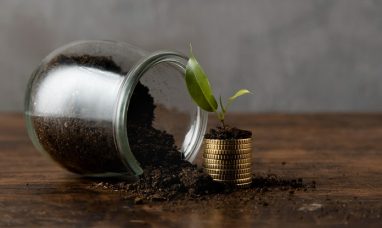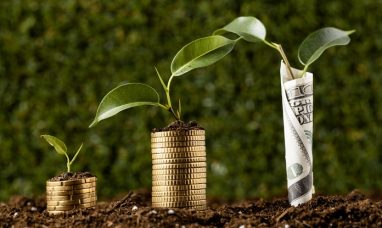AMAZONAS, Brazil, Oct. 03, 2022 —Brazil Potash Corp. (NYSEAMERICAN:GRO) is excited to announce the signing of the following legally binding agreements with Amaggi Exportação e Importação Ltda. (“AMAGGI”), one of the world’s largest privately held soybean producer with complimentary operations spanning agricultural farming, commodities trading, logistics operations and energy production, and its logistics subsidiary, Hermasa Navegação da Amazônia Ltda.:
1) Offtake Agreement, with take or pay terms and conditions for 500,000 tonnes per year of potash;
2) Marketing Agreement to sell Brazil Potash’s remaining 1.9 million tonnes of potash per year; and
3) Barge Transportation Agreement to ship the initial planned 2.4 million tonnes of potash per year of production to inland ports close to major farming regions within Brazil.
All of these Agreements consider very high standards and obligations for both parties on environmental, social, and governance concerns.
These contracts apply solely to Brazil Potash’s Phase One Autazes production of 2.4 million tonnes of potash per year for a 15 to 17 year term with a mutual option to extend. The Offtake Agreement and Marketing Agreement potash sale price is based on the spot Brazil delivered price for granular Muriate of Potash (i.e. MOP CFR Brazil) plus inland freight savings minus a discount.
Once the project is operational, as part of the barge transportation agreement, Hermasa will allocate the required assets and resources for the covered transportation of potash primarily from Brazil Potash’s port near the village of Urucurituba on the Madeira River to Hermasa’s owned port located at Porto Velho in the northwest state of Rondonia or through the Amazonas and Tapajos’s rivers to other destinations.
Stan Bharti, Chairman of Brazil Potash, stated: “It’s game changing for Brazil Potash to sign binding contracts with AMAGGI. It is the ideal company for Brazil Potash to contract with as they consume a large amount of potash for application on their farmed land; they also have an extensive distribution and logistics network through their wholly owned subsidiary, Hermasa, which operates a barge-to-ocean vessel transshipment terminal only 40 miles upstream from our Autazes project. I have known Blairo Maggi for a number of years and am excited to be working with AMAGGI and its talented team.”
Blairo Maggi, one of the shareholders of AMAGGI, stated: “Brazil is a country rich in farming know-how with massive amounts of cultivated land, fresh water and an ideal temperature to allow for year-round growing. However, despite being one of the world’s largest consumers of potash, globally, we are heavily exposed given that 98% of this essential plant nutrient is imported. Having a large-scale domestic source of conventional potash – as proposed by Brazil Potash – is important to help ensure both Brazil’s and global food security. I am therefore happy that AMAGGI is able to be part of this important project.”
About AMAGGI
Founded in 1977, AMAGGI is the largest Brazilian grain and fiber company with 2021 revenues of US$7 billion. Present in several stages of the agribusiness chain, AMAGGI operates in the agricultural production of grains, fibers and seeds, origination, processing and commercialization of grains and inputs, grain river and road transport, port operations, in addition to the generation and commercialization of renewable electric energy.
AMAGGI produces circa 1.1 million tons of grains and fibers per year – including soy, corn, and cotton – and has a commercial relationship base of approximately 6000 rural producers. Headquartered in Cuiabá (MT), AMAGGI is present in all regions of Brazil, with farms, warehouses, offices, factories, river and road fleet, port terminals and hydroelectric plants. Abroad, the company has units and offices in Argentina, China, Netherlands, Norway, Paraguay, and Switzerland.
AMAGGI’s Social and Environmental Management (Gestão Socioambiental AMAGGI, GSA) is based on ISO standards 14001:2015 (environment) and complies to the requirements of NBR 16001:2012 (social responsibility) as well as to the standards required by important certifications such as RTRS (Round Table on Responsible Soy), Proterra, and ABR/BCI (Responsible Brazilian Cotton, Algodão Brasileiro Responsável/Better Cotton Initiative), among others. To AMAGGI, the development of sustainable businesses is directly connected to the way the company promotes its activities, considering the impact on the environment. In that sense, throughout the years the company has increased efforts to consolidate a business model that builds and supports strategic partnerships and the adoption of broad, transparent commitments.
About Brazil Potash
Brazil Potash has advanced its large-scale development stage potash project to a near construction ready state. Brazil is one of the world’s largest and fastest growing consumers of potash but imports 98% of its needs at high cost. As a result, over 1.3 million tonnes of Greenhouse Gas emissions are unnecessarily generated from maritime transportation and potash production in jurisdictions with higher emission factors. Brazil Potash’s sylvanite ore body is in Brazil beside a major river, which will enable the company to extract, process and deliver potash for the same cost that importers pay for transportation alone. The company has completed a feasibility study, EISA and obtained majority of the permits required for project construction.
For more information, please contact:
Brazil Potash Investor Relations
[email protected]
Cautionary Note Regarding Forward-Looking Statements
All statements, other than statements of historical fact, contained in this press release constitute “forward-looking statements” and are based on the reasonable expectations, estimates and projections of the Company as of the date of this letter. The words “plans,” “expects,” or “does not expect,” “is expected,” “budget,” “scheduled,” “estimates,” “forecasts,” “intends,” “anticipates,” or “does not anticipate,” or “believes,” or variations of such words and phrases or statements that certain actions, events or results “may,” “could,” “would,” “might,” or “will be taken,” “occur” or “be achieved” and similar expressions identify forward-looking statements. Forward-looking statements include, without limitation, statements regarding the contracts executed with the Amaggi Group and Hermasa, the anticipated benefits and commercial implications of such contracts for the Company and Brazil, anticipated reductions in greenhouse gases, indigenous consultation process, completion of studies and assessments, the receipt of the installation licence and conditions precedent thereto including progress of Indigenous consultations, environmental or community benefits, governmental support of the Autazes project, job creation and skills training for local communities, the growth of the potash market, expected industry demands, the Company’s business strategy, currency fluctuations, government regulation and environmental regulation. Forward-looking statements are necessarily based upon a number of estimates and assumptions that, while considered reasonable by the Company as of the date of such statements, are inherently subject to significant business, economic and competitive uncertainties and contingencies. The estimates and assumptions contained in this letter, which may prove to be incorrect, include, but are not limited to, the various assumptions of the Company set forth herein. Known and unknown factors could cause actual results to differ materially from those projected in the forward-looking statements. Such factors include, but are not limited to fluctuations in the supply and demand for potash, changes in competitive pressures, including pricing pressures, timing and amount of capital expenditures, changes in capital markets and corresponding effects on the Company’s investments, changes in currency and exchange rates, unexpected geological or environmental conditions, changes in and the effects of, government legislation, taxation, environmental regulations, controls and regulations and political or economic developments in jurisdictions in which the Company carries on its business or expects to do business, success in retaining or recruiting officers and directors for the future success of the Company’s business, officers and directors allocating their time to other ventures; success in obtaining any required additional financing to develop the Autazes project; employee and community relations, and risks associated with obtaining any necessary licenses or permits. Many of these uncertainties and contingencies can affect the Company’s actual results and could cause actual results to differ materially from those expressed or implied in any forward-looking statements made by, or on behalf of, the Company. There can be no assurance that forward-looking statements will prove to be accurate, as actual results and future events could differ materially from those anticipated in such statements. All of the forward-looking statements made in this letter are qualified by these cautionary statements. These factors are not intended to represent a complete list of the factors that could affect the Company. The Company disclaims any intention or obligation to update or revise any forward-looking statements, except to the extent required by applicable law. The reader is cautioned not to place undue reliance on forward-looking statements.
Visit here for a free report on Brazil Potash Corp. (NYSEAMERICAN:GRO).
Get investment opportunities before the rest of the market in real-time. Get this company's corporate presentation now. Subscribe to download! Over 120,000 subscribersSUBSCRIBE FOR TRADING INSIGHTS AND ALERTS. STAY AHEAD.








